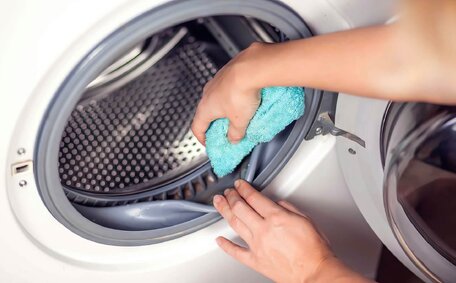Introduction to Choosing Plumbing Materials
Choosing the right plumbing materials for your home is a critical task that requires careful consideration.
Confronted with a variety of plumbing pipes and materials, including copper, PVC, stainless steel, and PEX, your task is to select options that fulfil your needs and fit your budget while complying with Australian standards.
This guide will provide you with essential information to select the appropriate plumbing fittings and materials for water supply, drainage, and temperature systems in a residential setting.
We will delve into the best pipe choices and materials for your home, examining their key benefits and drawbacks, durability, and factors to consider in relation to your existing setup.
Unique characteristics of materials like copper, PEX, and PVC offer solutions that align with your home’s specific environmental conditions and water flow requirements.
Additionally, we provide guidance on plumbing fixtures for your home, helping to identify corrosion issues and the optimal timing for pipe updates within your residence’s structure.
Whether you’re renovating your bathroom or starting new construction, this guide will assist in making informed choices about the most suitable plumbing materials for your home’s requirements. For personalised advice that ensures your home’s plumbing meets specific requirements, our expertise is just a call away.
Identifying When You Need New Pipes
Various signals may indicate the need for pipe replacement in your Cambridge Park property. Discoloured water, low water pressure, frequent leaks and blocked drains can all affect your daily life and prompt pipe upgrades.
Over time, water that is rusty, brown, or has an odd odour often signals issues with your drains, including corroded galvanized steel pipes or degrading cast iron pipes. Blue-green stains signify corrosion, a phenomenon starkly noticeable compared to the resilience of galvanized pipes, whereas white scaling indicates mineral buildup in your pipes. If you notice dark mould, sediments or a foul stench, it likely signifies pipe damage and the buildup of contaminants.
Diminishing water pressure, together with longer wait times for tankless water heaters, suggest significant issues within your plumbing system. This may result from accumulations narrowing your pipes’ diameter or unseen cracks reducing flow, which is why it’s essential to choose your fixes wisely.
Ensure your plumbing solutions cater to your home’s needs, promptly managing drips and leaks to prevent potential damage. Neglected, such issues may precipitate plumbing system failure, allowing water to seep into walls and foundations, thus causing significant harm.
Maintaining vigilance for telltale signs such as discolouration, odd odours, decreasing water pressure and leaks can save you from more complicated issues by enabling prompt identification of plumbing concerns. Seek professional drain cleaning services if you notice any signs of issues impacting your home’s condition and functionality.
Overview of Pipe Material Options
When considering plumbing for any property, there’s a range of pipe materials to consider. The most common type pipe choices for residential plumbing pipes include:
- Pipes Copper – long-lasting and corrosion resistant due its robust nature, copper is a popular choice yet more expensive
- PEX pipe – a type of pipe made from flexible plastic celebrated for its easy install process and resistance to UV light
- PVC – A rigid plastic pipe that is also fit for drainage systems and venting.
- Galvanized steel pipe – durable pipes which can last over 50 years, though vulnerable to corrosion from acidic water
Selecting suitable plumbing pipes depends on factors such as soil type, freeze risk, water purity, and noise levels. We’ll explore key features and ideal uses of various types to aid your decision-making process.
By weighing the advantages and disadvantages in advance, you can select the right type of pipes for water supply lines, drainage, hot water systems, and more.
Plastic Pipe Types and Usage
Plastic and polybutylene pipes, common in many homes, offer flexible and durable options with their own sets of advantages and challenges. Two materials that are most commonly used are crosslinked polyethylene (PEX) and polyvinyl chloride (PVC).
Renowned for adaptability and ease use, PEX pipes can effortlessly manoeuvre around corners, surpassing the flexibility of traditional rigid options such as than PVC. Due to its UV resistance, resilience to temperature extremes, and compatibility with threaded fittings, PEX pipes are excellent for hot and cold water supply across residential and commercial areas.
The crosslinked polyethylene material, or copper PEX, safeguards against corrosion and scale more effectively than metallic alternatives, making it a strong contender for each supply line. PEX is multifaceted, well-suited for a variety of hot water applications alongside cold water, rendering it fitting for supply lines and radiant heating solutions.
Rigid pipes made from materials other than PVC are suitable for drainage due to their compatibility with various environmental conditions. Compared other materials like traditional galvanised steel, lightweight PVC also reduces noise from moving wastewater.
Plastic pipes resist chemical corrosion from household cleaners and acids, offering better resilience for plumbing heating systems compared to other materials. Its durability and leak-proof nature make plastic an economical choice for Australian homes’ drainage, sewer systems, and vent installations, including underground piping.
The NSF certifications for PVC and PEX, as well as their respective fittings, ensure that these materials provide reliable and safe plumbing applications in your home. They limit contamination risks, meeting health standards for potable water contact.
As right plumbing pipes your home’s infrastructure can rely on, PEX and PVC meet Australian standards and suit most Cambridge Park homes’ water supply, drainage, and venting needs. Their flexible form and chemical resistance provide efficient, affordable plumbing across hot and cold flows, supply lines and waste removal systems.
Metal Pipe Types and Usage
Apart from steel, copper pipes provide homeowners with a durable and enduring solution for water distribution and drainage. Several metal pipes are commonly used, including copper, galvanised steel, and stainless steel.
Copper pipes are corrosion-resistant and have a substantial lifespan, contributing to their favourability even though they are costlier.
Soft copper pipe, which is easily bent, can navigate complex layouts. Brass piping can handle hot and cold water delivery while preventing scale accumulation. Copper is frequently utilised for supply lines, drains, and vent systems.
Their inner zinc coating prevents corrosion. Re-galvanising can further extend steel pipes’ working life. Proper installation is essential to prevent the corrosion that may occur over time.
Often used for main water lines, galvanised steel suits large supply delivery. Robust galvanised steel pipes resist impacts and can operate 50+ years.
Contemporary stainless steel pipes, often connected to your water heater, include chromium which bolsters their ability to resist corrosion. Easy installation compared to copper complements stainless steel’s durability.
Grasping the variances in longevity, corrosion resilience, pressure capacity, and price aids homeowners in selecting the right pipes for their properties.
Copper brings reliability for standard water and heating flows, making them a preferred choice for many. Galvanised steel is adept at transporting high volumes of water through supply lines. Stainless steel caters well for hot water needs. Partner with a professional to determine appropriate metal piping for your household.
Selecting the Right Pipes for Specific Applications
When choosing pipes, it’s vital to match the material to its intended use within your plumbing system. Key considerations include whether it will supply drinking water, remove wastewater or handle hot flows.
Crosslinked polyethylene (PEX) piping can withstand temperatures up to 95°C, suitable for prolonged hot water supply from your water heaters to taps. Its flexibility also enables straightforward installation.
Polyvinyl chloride (PVC) possesses chemical resistance allowing durable performance within residential drainage systems. From basin and bath wastes to vent stacks, PVC handles soaps, oils and detergents well, avoiding corrosion issues.
For home drinking supplies, copper presents a reliable choice. While more costly, its longevity, scale resistance and corrosion protection help maintain water quality and flow performance long-term.
Carefully evaluating operational temperatures, exposure to water contaminants and lifecycle costs for each application allows tailored pipe material selection. This ensures plumbing systems function efficiently and safely throughout household renovation or new building projects.
Considering Plumbing Codes and Standards
It’s critical to follow local plumbing codes and standards when choosing and installing plumbing materials in any home. Compliance ensures safety, efficiency, and functionality across hot and cold water systems, drainage, gas lines and other essential household flows.
In Australia, all plumbing supplies, fixtures and fittings must comply with the standards set by the Australian Building Codes Board (ABCB). These mandate design specifications and installation procedures for residential plumbing infrastructure. Certifications such as WaterMark also verify that plumbing fittings, alongside pipes, taps, and valves, conform to the requisite standards.
In New South Wales, practitioners follow the Plumbing Code of Australia regulated under the Plumbing and Drainage Act 2011. This outlines the latest technical specifications on materials, construction techniques, inspection policies and maintenance procedures specific to the region.
Key standards for product performance include:
- AS/NZS 2032: Installation of PVC pipe systems
- AS/NZS 2492: Cross-linked polyethylene (PE-X) pipes for pressure applications
- AS 1432: Copper tubes for plumbing, gasfitting and drainage applications
These and other mandatory guidelines help guarantee all residential plumbing needs deliver efficiency, safety and reliability across hot and cold water conveyance, drainage networks and heating flows. Structured inspections also assess adherence.
Residents can ensure their plumbing system’s reliability and regulatory compliance by engaging qualified plumbers who use approved materials. Complying with regional codes may also lead to benefits with insurance coverage.
Should you engage in any plumbing installations or modifications, 'how do I make sure to verify credentials, insist on certified products, and authenticate certificates of compliance?' is a question we can guide you on. This guarantees plumbing outcomes align with changing local specifications mandated for public health and household functionality.





